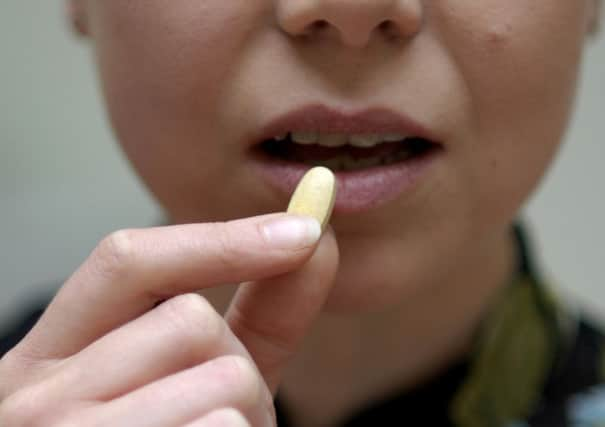Vitamin pills can damage your muscles, says study


The findings raise concerns about the effects of C and E supplements, taken by many thousands of people daily in the United Kingdom.
Many health experts advocate taking antioxidants such as vitamins C and E to help protect the body from the harmful by-products known as “free radicals” it creates when breaking into a sweat.
Advertisement
Hide AdAdvertisement
Hide AdThe vitamins are commonly taken by people who take part in sports because exercise has been proven to increase the generation of free radicals.
It had been widely believed antioxidant vitamins prevented damage to tissues called “oxidative stress” by eliminating free radicals said to cause it.
However, the new research, published in The Journal of Physiology, found the supplements hamper endurance training by disrupting the cells in muscles when they are exercised.
The 11-week study of young people found those using vitamin pills suffered disruption to proteins called mitochondria, the power supply for cells.
“Our results show that vitamin C and E supplements blunted the endurance training-induced increase of mitochondrial proteins, which are needed to improve muscular endurance,” said study leader Dr Goran Paulsen, from the Norwegian School of Sport Sciences at Sognsvann in Oslo.
During the trial, 54 young and healthy men and women were given vitamin C and E supplements or a dummy pill. The daily doses were 1000 milligrammes of vitamin C and 235 milligrammes of vitamin E, levels typically found in supplements that can be purchased in high street stores.
Three or four endurance sessions were completed per week, mostly involving running. Fitness levels, blood samples and muscle tissue were all analysed at the start and end of the study.
The supplements had no obvious effect on participants’ oxygen uptake or their performance in a 20 metre run.
Advertisement
Hide AdAdvertisement
Hide AdScientists found that molecular markers for the production of muscle mitochondria only increased in the group not given the vitamins.
“Our results indicate that high dosages of vitamin C and E – as commonly found in supplements – should be used with caution, especially if you are undertaking endurance training,” said Dr Paulsen.
“Future studies are needed to determine the underlying mechanisms of these results, but we assume that the vitamins interfered with cellular signalling and blunted expression of certain genes.”
Previous studies have shown that physical exertion increases the production of oxidising free radical molecules which may help to trigger muscle changes. Vitamins C and E both act as powerful antioxidants, which can have health benefits.
However, by reducing oxidative stress too much they may curb the body’s natural response to exercise, the study’s scientists warned.